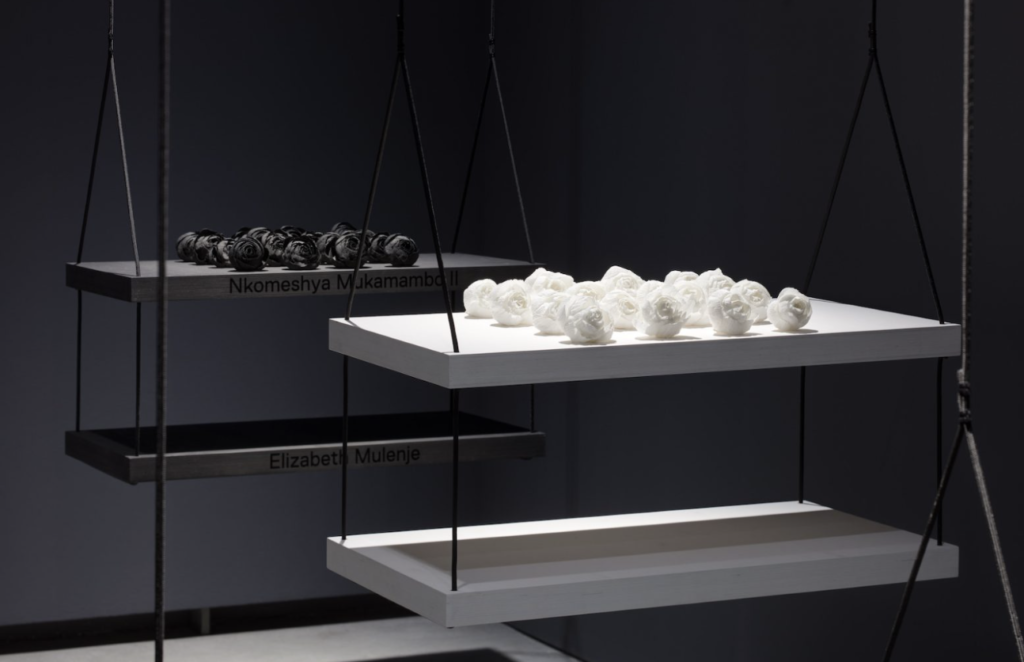History has been regarded a man’s territory, from the people being written about to the people writing the books. Gladys Kalichini speaks on erased women in history specifically in former Rhodesia and uses her art and research to challenge this erasure.

Gladys Kalichini was born in Lusaka, Zambia, and works as a visual artist and researcher. Her work centres on notions of erasure of women in colonial resistance history, our memory of women’s contributions towards the history of colonial resistance, as well as how women continue to be represented in the continent’s historical moments. Kalichini is currently pursuing a PhD in Art History at Rhodes University in Makhanda, South Africa and her research is focused on the re-examining of history as a means to trace how far back some aspects of gender inequality go.
Kalichini is a part of the postgraduate study program Arts of Africa and the Global South, which examines how art that is used in social debates alters people’s awareness of particular themes and promotes the discussion of decolonisation. This is art that elevates Africa and the other Global South regions to the forefront of intellectual inquiry and artistic creation. In this movement, there are many artists and academics who are all seeking to conduct high-quality research on these topics. As a part of this movement, Kalichini wants to develop a research capability and culture that fosters partnerships with African scholars and artists.
Kalichini showed her work titled ‘…these gestures of memory’ at the Knstlerhaus Bethanien international studio in Berlin, Germany between 2019 and 2020. Here she addressed the duality of memory and history, concepts of mourning, remembering and forgetting within the context of commemorating the stories of individual women in the resistance to colonial rule in Zambia and Zimbabwe – previously Northern and Southern Rhodesia. This begins when the artist observes that some women who opposed colonial power do not appear as they ought to in history, as if to forever erase their influence and existence. Then, the notion of what people have been told is their history and how much truth is in that is questioned, along with the validity of the well-known liberation myths and their domination.

Some of the exhibition included archived pictures of these women liberation heroes which were derived from the National Archives of Zambia in Lusaka, Zambia. As well as the National Archives of Zimbabwe in Harare, Zimbabwe. These women are Julia Chikamoneka, Bessie Chibesakunda Kankasa, and Amai Misozi to name a few. In her research, Kalichini managed to find Kankasa and had a conversation with her which helped shape her work even more. The exhibition was made in materials such as video, fabric and paper.
Kalichini participated in the Asiko International Art Programme in Maputo in 2015 as well as the Fountainhead Residency in Miami in 2017. The former seeks to fill the gap in the African education system which tends to leave the critical methodologies and histories that underpin artistic practice unattended. The latter is a month long residency which introduces artists to galleries and curators as well as providing mentorship for their projects.



